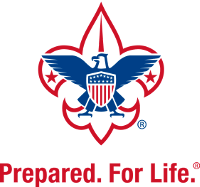Worthington State Forest
GPS: trailhead at 40º 58' 18" N, 75º 7' 31"W
Worthington State Forest is near Delaware Water Gap, where I-80 crosses the Delaware River between New Jersey and Pennsylvania. It is a 1.5-2 hour driver from Brooklyn.
There are multiple options for hiking at this location including overnight backpacking on the Appalachian Trail. The lean-to site (lean-to is only for AT through-hikers) has multiple bear boxes and at least one mouldering latrine. Bear box use is mandatory; you may not use the bear bags. There may be existing fire rings, but the general rule is no ground fires at this site (or any others on these trails).
It is approximately 3 miles from the trail head to the lean-to site. However, there are several different loops that can be done. Maps can be located on the New Jersey Department of Environmental Protection web site, as well as NY-NJ Trail Conference maps. It's also possible to hike from the trail head on I-80 all the way to Camp No-Be-Bo-Sco. If that's not enough, another camp we've not been to is just off the AT in this area, Yards Creek Scout Reservation (the information on this site has not been updated in a long time...).
Below is the actual itinerary used for the October 2012 trip.
Backpacking, 7-mile Loop, Sample Itinerary
Saturday
- 06:30 – Be at St. Anselm's parking for for final pack inspections.
- 07:00 – Depart for Delaware Water Gap.
- 08:45 – Estimated arrival at trailhead
- 09:00 – Depart trailhead.
- 12:00 – Arrival at camp site, trek is 4.5 miles. Depending on conditions and actual pace, arrival might be as late as 13:00.
- Agenda at camp site
- Lunch, cooking.
- Water treatment
- Set up tents, organize equipment.
- Post-lunch inspections (cooking gear clean and sanitary? food stored properly? tents properly set up and staked out?
- Scout skills practice
- knot tying: basic required knots, additional useful knots
- map, compass, GPS.
- Additional hike to extend distance for 5 miles for those needing this.
- 22:00 – Quiet time, old folks go to bed (me).
- 23:00 – Lights out.
Sunday
- 07:00 – Wake up, Breakfast
- 08:00 – Break Camp.
- 09:00 – Start return hike
- 11:30 – Arrive back at trailhead.
- 12:00 – Start drive back.
- 14:30 – Arrive in Bay Ridge
Return times are approximate. We expect to stop and eat on the road; you will need lunch money for the return trip.
Merit Badge and Advancement Activities
In addition to having an enjoyable time and getting a better picture of the natural world, the aim of the trip is to help you grow as a scout and as a person. The trip will provide the opportunity to satisfy several requirements for advancement or merit badges although the same achievement can only be counted toward one requirement. The Hiking, Camping, and Backpacking merit badges are all Eagle badges and this trip will provide the opportunity to satisfy some requirement for each of those. Please read the only merit badge requirements for backpacking at http://meritbadge.org/wiki/index.php/Backpacking. That will help you understand how to best prepare for this trip. Note that every merit badge includes a “know something” and a “do something” part. You need to know how to prepare for this trip before we do the trip. Here are some of the requirements we expect to work on as part of this trip, either on the trip itself or as part of preparing for it:
- Demonstrate two ways to treat water and tell why water treatment is essential. (Backpacking #5a)
- Demonstrate that you can read topographic maps (Backpacking #6a)
- While on a trek, use a map and compass to establish your position on the ground at least three times at three different places, OR use a GPS receiver to establish your position on a topographic map and on the ground at least three times at three different places. (Backpacking #6b)
- Demonstrate that you know how to operate a backpacking stove safely and to handle liquid fuel safely. (Backpacking #8b)
- Prepare at least three meals using a stove and fuel you can carry in a backpack. (Backpacking #8c, will only prepare 2 meals on this trip).
- Demonstrate that you know how to keep cooking and eating gear clean and sanitary and that you practice proper methods for food storage while on a backpacking trek. (Backpacking #8d)
- Write a plan for a patrol backpacking hike that includes a time control plan. (Backpacking #9a)
- Show that you know how to properly pack your personal gear and your share of the crew’s gear and food. (Backpacking #9b)
- Show you can properly shoulder your pack and adjust it for proper wear. (Backpacking #9c)
- Conduct a prehike inspection of the patrol and its equipment. (Backpacking #9d)
- While carrying your pack, complete a hike of at least 2 miles. (Backpacking #9e)
- Make a written plan for an overnight trek and show how to get to your camping spot using a topographical map and compass OR a topographical map and a GPS receiver. (Hiking #3)
- (1) Hike up a mountain, gaining at least 1,000 vertical feet and (2) Backpack, snowshoe, or cross-country ski for at least 4 miles. (satisfies Camping #9b)
- Prepare for an overnight campout with your patrol by doing the following (Camping #7)
- Make a checklist of personal and patrol gear that will be needed.
- Pack your own gear and your share of the patrol equipment and food for proper carrying. Show that your pack is right for quickly getting what is needed first, and that it has been assembled properly for comfort, weight, balance, size, and neatness.
- Log in to post comments
